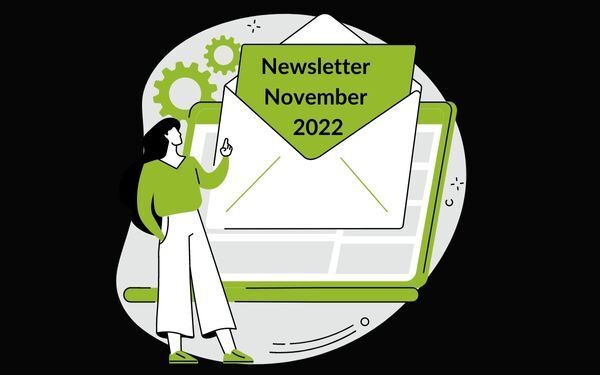A short history of early content marketing
What can we learn from the early pioneers of content marketing?
‘Content is King’
On 3 January 1996, Bill Gates posted a blog titled ‘Content is King’. He went on to say:
“Content is where I expect much of the real money will be made on the Internet, just as it was in broadcasting.”
Penton Custom Media, founded in Ohio Cleveland, first coined the phrase ‘content marketing’ in 2001. Since then, Google Trends has seen a sizeable increase in online searches for the phrase.
What is content marketing?
Content marketing refers to the publishing of material to increase brand awareness. This can include blogs, ebooks, ezines, guides, podcasts, social media posts, and the like.
The art of content marketing is nothing new. It’s as old as marketing itself, but with the internet, it’s become easier to distribute content, making it a bigger part of our lives than ever before.
Most brands are publishers now, with big agencies such as Ogilvy & Mather employing journalists as well as copywriters, because they are often more adept at writing in-depth long-form pieces for their clients.
Why is content marketing so effective?
The practice of content marketing has grown in popularity as it’s often the perfect way to establish yourself as an authority in your field, making customers more likely to choose you over your competitors.
Content marketing allows you to demonstrate your experience and expertise, or show your product or services in action. Most people don’t want a sales pitch, but we all like to be kept informed, entertained and amused.
What can we learn from the early pioneers of content marketing?
Let’s start with Benjamin Franklin, the American inventor best known for the lightning rod, bifocals, and the Franklin stove, among other things.
Franklin knew that the way to influence his potential customers was to serve up exactly what they wanted and needed to know.
In 1732, he issued Poor Richard’s Almanack to promote his printing business.
The Benjamin Franklin Historical Society websitetells us that the publication contained “all sorts of interesting information such as the calendar, weather predictions, sayings, poems and demographics.” The book also featured “recipes, trivia, advice, aphorisms, and proverbs about industry and frugality.” It was said that Franklin considered it a “vehicle of instruction for common people who could not afford books, a literature for the masses.”
Education and influence
Content marketing is an excellent way to handle objections whilst highlighting benefits alongside features.
Thomas Edison’s publication The Edison Electric Lighting Company Bulletin (1882) showed a sceptical public just how the incandescent light bulb worked, whilst allaying fears fuelled by the gas industry about its safety. At least 22 editions of the Bulletin were produced, continuing to educate, inform and influence.
As well as educating consumers, Edison created a buzz in the industry by ensuring that these ‘top secret’ company memos were leaked to the media for wider circulation. This commitment to savvy content marketing helped Edison to acquire financial backing, something that can be replicated by businesses seeking investment and funding today.
The power of celebrity
To spark interest in its publications, the publishing house Charles Scribner’s Sons started to issue a monthly magazine featuring profiles of its most famous authors.
Scribner’s Magazine (1887) was prized for its writing and superior engravings, it proved a huge success in boosting sales, and went on to rival the likes of Harper’s Monthly and Atlantic Monthly.
High profile public figures such as Theodore Roosevelt contributed to the magazine, adding to its reputation for publishing excellence.
Businesses can benefit from a similar strategy today by collaborating with or featuring influential people in their industry, for example through interviews or seeking quotes from others.
Integration in brand strategy
In keeping with Johnson & Johnson’s founding principles of putting medics and patients above profits, Johnson & Johnson’s Modern Methods of Antiseptic Wound Treatment (1888) was aimed at doctors who used bandages, and was followed by later information booklets for the medical profession.
The publication paved the way for the widespread use of sterilisation in surgery. Johnson & Johnson’s association with the content, and its impact on the medical world, meant that it had a competitive advantage over others thanks to its new position as a leading expert in the field.
Committed to their belief in the power of content marketing, in 1943, just before Johnson & Johnson became a publicly traded company, then-chairman Robert Wood wrote the now famous ‘Our Credo’. It begins:
“We believe our first responsibility is to the doctors, nurses and patients, to mothers and fathers and all others who use our products and services.”
This mission statement reflected Johnson & Johnson’s brand strategy, and continues to influence the way that they use content marketing as a tool to educate and inform.
Authority through education
Content marketing can be a useful way to position a business as an authority within their niche. A powerful way to do this is through a commitment to putting your customers’ interests first.
Machinery manufacturer John Deere established itself as the leading authority on all the latest innovations in agriculture when it published the first edition of “The Furrow” in 1895.
The publication offered tips to farmers on how to increase efficiency and profitability. This information had a direct benefit to its readers, cementing John Deere as an informative and trustworthy brand.
This consumer magazine now reaches 1.5 million readers in 40 countries in 12 different languages.
Learn from your audience and adapt for success
Michelin guides have acquired an authority all of their own, with Michelin stars for culinary excellence coveted by top chefs the world over.
What originally started in 1900 as a guide to the British Isles developed into the market-leading guide to the best restaurants. The Michelin Guide is a lesson in recognising what’s popular with your audience and adapting your content to meet their wants and needs.
The first print run of the Michelin guide was 35,000 copies of 400 pages, and featured useful information for drivers including details on petrol stations and where to stay. After noticing the popularity of the restaurant section, the creators shifted their focus to this and grew the guide into the authority that it is today. The Michelin name is now synonymous with quality – all as a result of some brilliant content marketing.
Demonstrate the value of a product
The Jell-o recipe book allowed the company to show how affordable and easy their product was to use. It was a resounding success when it was launched in 1904, and by 1906 had contributed to sales in excess of $1 million. The recipe book had the added benefit of being something that people would keep in their kitchens and potentially look at regularly, contributing to repeat sales of the product over time.
Such was its popularity that it spawned a host of imitators when companies such as King Arthur Flour and Betty Crocker followed suit with recipe books of their own.
The same marketing practice of demonstrating the value of a product is favoured by many high-end food delivery and farm shops today in an attempt to become their customer’s brand of choice. Along with the produce comes a weekly newsletter or recipe cards, as well as targeted and strategic email campaigns that keep their customers informed, educated and entertained.
1924 – Sears’ ‘World’s Largest Store’ radio show
It makes sense to use the latest content platforms if they’re popular with your target audience. The 1920s witnessed the birth of commercial radio, and farming suppliers Sears exploited the new medium to inform and entertain Midwest farmers who had been particularly hard hit with the deflation of 1920-21.
The Sears-Roebuck Broadcasting Station served up 50 hours of weekly programming as ‘
a goodwill offering dedicated to its listeners’.
Their magazine shows gave 1920s rural America exactly what it wanted in those hard times: escapism in the form of music and comedy, alongside farming tips and practical advice.
Today we have websites,
social media , podcasts and vlogging. While our attention is spread more thinly these days, identifying which medium is popular with your potential customers means that you can build a content strategy to reach and influence them.
Lessons for future content marketers
If these early pioneers share anything in common, they knew their audience and what they wanted. They also saw their content as integral to their ethos – something that should be aligned to their brand values and strategy, not a standalone activity.
With high-quality writing, these pioneers of content marketing used the power of suggestion and high-quality content to establish themselves as leading voices in their industries.
While the type of content and distribution channels have changed, these early lessons inform the content marketing world today.
Get help with content marketing in Exeter today
If you need help with your content marketing then get in touch with QuayClick. We're a website design and digital marketing agency in Exeter. We specialise in helping small businesses to grow with the right digital marketing strategy.




QUICK LINKS
QC Newsletter sign-up
We will get back to you as soon as possible.
Please try again later.
All Rights Reserved | QuayClick Marketing Ltd
We’re a website design and digital marketing agency based in Exeter. We help businesses grow online and have over 20 years of experience in Web Design. We offer several inbound strategies, including paid search and SEO. In addition, our content team can help with copywriting and email campaigns.

















